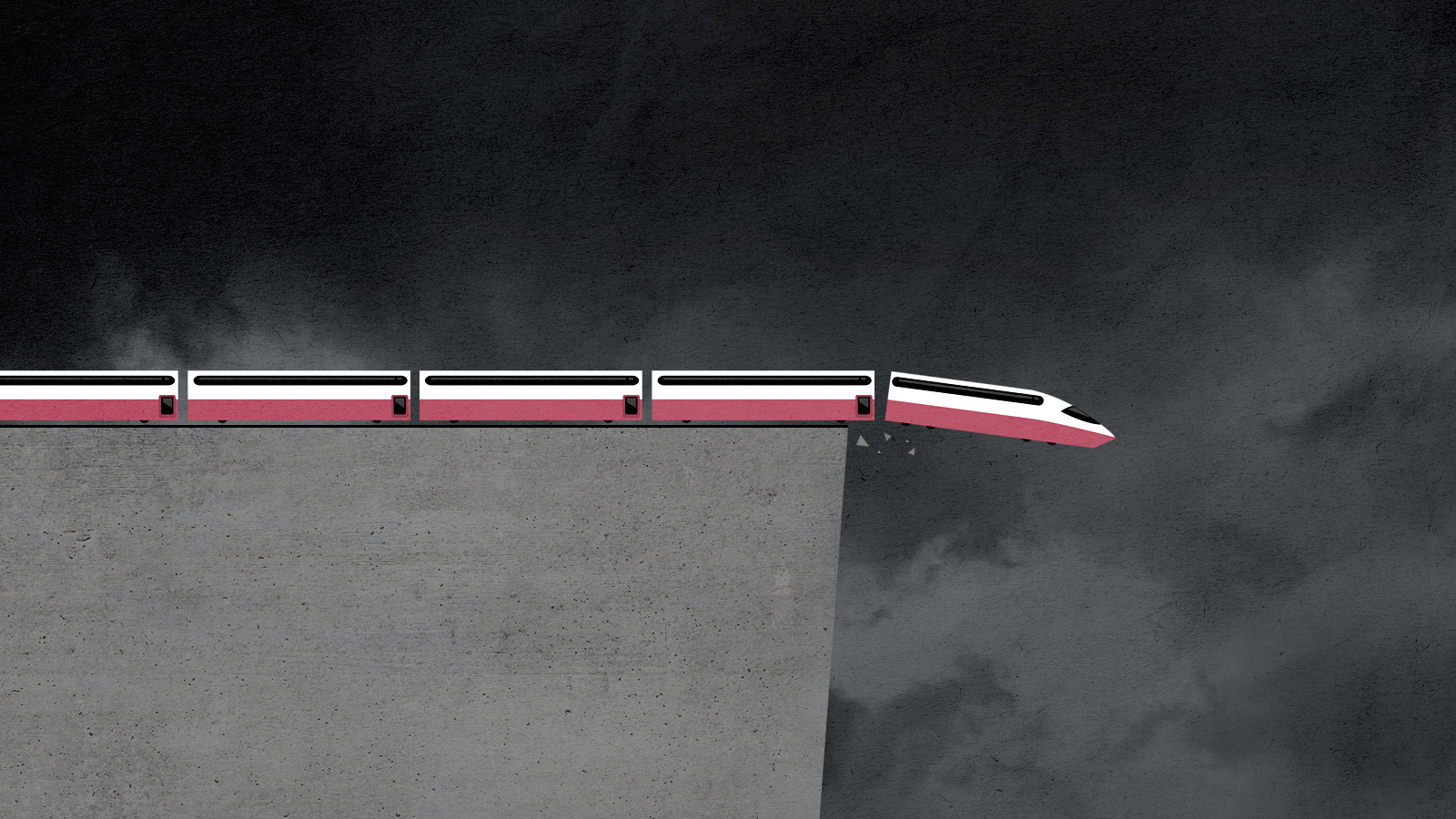A train to nowhere


A free daily email with the biggest news stories of the day – and the best features from TheWeek.com
You are now subscribed
Your newsletter sign-up was successful
How much can a train cost? According to the latest projections from the California High Speed Rail Authority, the answer is over $100 billion. In a business plan released on Tuesday, the agency raised its estimate of the cost to build a 500-mile system connecting San Francisco and Los Angeles. Including the new $5 billion increase, the total is now more than three times the initial budget of $33 billion.
That ever-growing price tag reflects a mounting crisis for American infrastructure: It costs too much. While the budget was modest compared to this California rail effort, the Second Avenue subway in New York cost $4.5 billion — about twice as much as comparable projects in other parts of the world. Nor are trains the only problem. Roads, bridges, and energy projects face similar obstacles.
Some causes of infrastructure inflation are inextricable from the American political system. These include fractured jurisdictions, a weak civil service, and electoral incentives that encourage legislators to reward their own districts rather than promoting the most cost-efficient solutions. Other challenges are associated with the design process. Researchers at New York University argue that plans for fancy stations are driving the exorbitant cost for the extension of Boston's Green Line light rail. Regulatory compliance plays a role, too. However justifiable by themselves, requirements to minimize environmental impacts, ensure disability access, or meet elevated safety standards add up to huge bills.
The Week
Escape your echo chamber. Get the facts behind the news, plus analysis from multiple perspectives.

Sign up for The Week's Free Newsletters
From our morning news briefing to a weekly Good News Newsletter, get the best of The Week delivered directly to your inbox.
From our morning news briefing to a weekly Good News Newsletter, get the best of The Week delivered directly to your inbox.
It's tempting to dismiss these woes as blue states and cities strangling themselves in red tape. But the country as whole won't thrive if its most productive regions are embalmed by decaying infrastructure. Despite its failure to pass Build Back Better, the Biden administration did secure more than $1 trillion from Congress to meet some of those needs. Unless they find ways to control costs, though, more spending is just throwing good money after bad.
A free daily email with the biggest news stories of the day – and the best features from TheWeek.com
Samuel Goldman is a national correspondent at TheWeek.com. He is also an associate professor of political science at George Washington University, where he is executive director of the John L. Loeb, Jr. Institute for Religious Freedom and director of the Politics & Values Program. He received his Ph.D. from Harvard and was a postdoctoral fellow in Religion, Ethics, & Politics at Princeton University. His books include God's Country: Christian Zionism in America (University of Pennsylvania Press, 2018) and After Nationalism (University of Pennsylvania Press, 2021). In addition to academic research, Goldman's writing has appeared in The New York Times, The Wall Street Journal, and many other publications.
-
 How Democrats are turning DOJ lemons into partisan lemonade
How Democrats are turning DOJ lemons into partisan lemonadeTODAY’S BIG QUESTION As the Trump administration continues to try — and fail — at indicting its political enemies, Democratic lawmakers have begun seizing the moment for themselves
-
 ICE’s new targets post-Minnesota retreat
ICE’s new targets post-Minnesota retreatIn the Spotlight Several cities are reportedly on ICE’s list for immigration crackdowns
-
 ‘Those rights don’t exist to protect criminals’
‘Those rights don’t exist to protect criminals’Instant Opinion Opinion, comment and editorials of the day
-
 Epstein files topple law CEO, roil UK government
Epstein files topple law CEO, roil UK governmentSpeed Read Peter Mandelson, Britain’s former ambassador to the US, is caught up in the scandal
-
 Iran and US prepare to meet after skirmishes
Iran and US prepare to meet after skirmishesSpeed Read The incident comes amid heightened tensions in the Middle East
-
 Israel retrieves final hostage’s body from Gaza
Israel retrieves final hostage’s body from GazaSpeed Read The 24-year-old police officer was killed during the initial Hamas attack
-
 China’s Xi targets top general in growing purge
China’s Xi targets top general in growing purgeSpeed Read Zhang Youxia is being investigated over ‘grave violations’ of the law
-
 Panama and Canada are negotiating over a crucial copper mine
Panama and Canada are negotiating over a crucial copper mineIn the Spotlight Panama is set to make a final decision on the mine this summer
-
 Why Greenland’s natural resources are nearly impossible to mine
Why Greenland’s natural resources are nearly impossible to mineThe Explainer The country’s natural landscape makes the task extremely difficult
-
 Iran cuts internet as protests escalate
Iran cuts internet as protests escalateSpeed Reada Government buildings across the country have been set on fire
-
 US nabs ‘shadow’ tanker claimed by Russia
US nabs ‘shadow’ tanker claimed by RussiaSpeed Read The ship was one of two vessels seized by the US military
